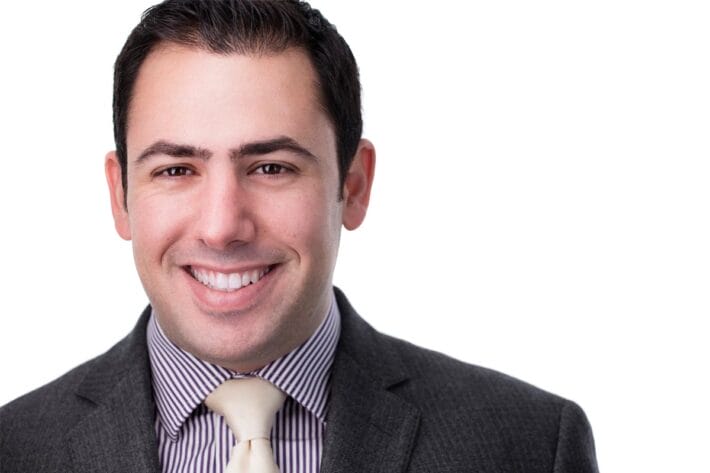
Born in Gdańsk, Poland, Tomasz Nowakowski was inspired from an early age by 17th-century Polish astronomer Johannes Hevelius, who drew the first map of the moon’s surface. “Growing up, I was naturally fascinated by the stars and cosmos, and the universe,” he says. “When I learned about particle physics, I became fascinated by the fact that all of the universe around us could be explained by a set of elementary building blocks and the forces that mediate the interactions between them.”
Nowakowski’s innate curiosity led him to a career in neuroscience, a field where his inquiries have pioneered advancements in brain-mapping. He receives a 2024 Vilcek Prize for Creative Promise in Biomedical Science for the development of technologies to identify and track the regenerative capacity of neural stem cells and neural progenitor cells in the human brain.

Decoding the Brain’s Blueprint
“The brain contains more cell types than any other part of our bodies,” says Nowakowski. “My research is focused on understanding how cells of the human brain emerge from stem cells and mature into the fully functional brain.” With his team at the University of California, San Francisco, Nowakowski seeks to atlas “the universe of these cell types within us.” His long-term goal is to understand how these cell types function in the context of disease, and how scientists and clinicians may target specific cells for therapeutic purposes.

Nowakowski’s interest in the basis of neurological and neuropsychiatric disorders grew out of personal experience. As an adolescent, he volunteered at a hospice where he worked with patients with schizophrenia. He saw how complex the human mind was, and how limited science and medicine’s understandings of the bases of neurological disorders were. This profound experience ignited his desire to understand more about the mind, initiating his education and career in neuroscience and regenerative medicine.

After achieving honors in science in high school, Nowakowski enrolled at the University of Edinburgh. There, his work focused on developmental neurobiology, as he earned a Bachelor of Science in Physiology, followed by a Master of Science in Life Sciences, and finally a PhD in Biomedical Sciences. Following the completion of his PhD, he decided to pursue postdoctoral work in the United States, for the intellectual freedom and interdisciplinary opportunities that U.S. institutions afford scientists. He moved to the United States in 2012, where he completed research at the University of California, San Francisco, where he is now an associate professor of Neurological Surgery and Anatomy.








The array of accolades and awards Nowakowski has received for his contributions to contemporary neuroscience are a testament to the value and insight that his research has given to the field. In addition to his work with the UCSF, Nowakowski is a Chan-Zuckerberg Biohub Investigator, as well as a New York Stem Cell Foundation Robertson Neuroscience Investigator. He has participated in research projects and presentations with the Simons Foundation for Autism Research, the Sontag Foundation Initiative, the Eli and Edythe Broad Foundation, Schmidt Futures, the Shurl and Kay Curci Foundation, the Esther A. and Joseph Klingenstein Fund, and the Brain & Behavior Research Foundation.

A Champion for Diversity in Science
Nowakowski appreciates the value that diversity of background and experience provides in research and analysis. “It’s so interesting to see how many different solutions people can have to the same problem,” he says. “That has really helped me to appreciate the diversity of the scientific process, and perspective.” It was a core part of what drew him to the United States for his work—and something that he seeks to uphold as a mentor to his own students and trainees.
Related News
Vilcek Foundation Honors 20th Group of Immigrants and Visionaries

Berna Sozen: A Journey Unlocking Early Human Development

Vilcek Foundation Awards $250,000 to Immigrants in Biomedical Science

You may also be interested in
Tomasz Nowakowski

Sergiu P. Pasca

Michael Halassa
